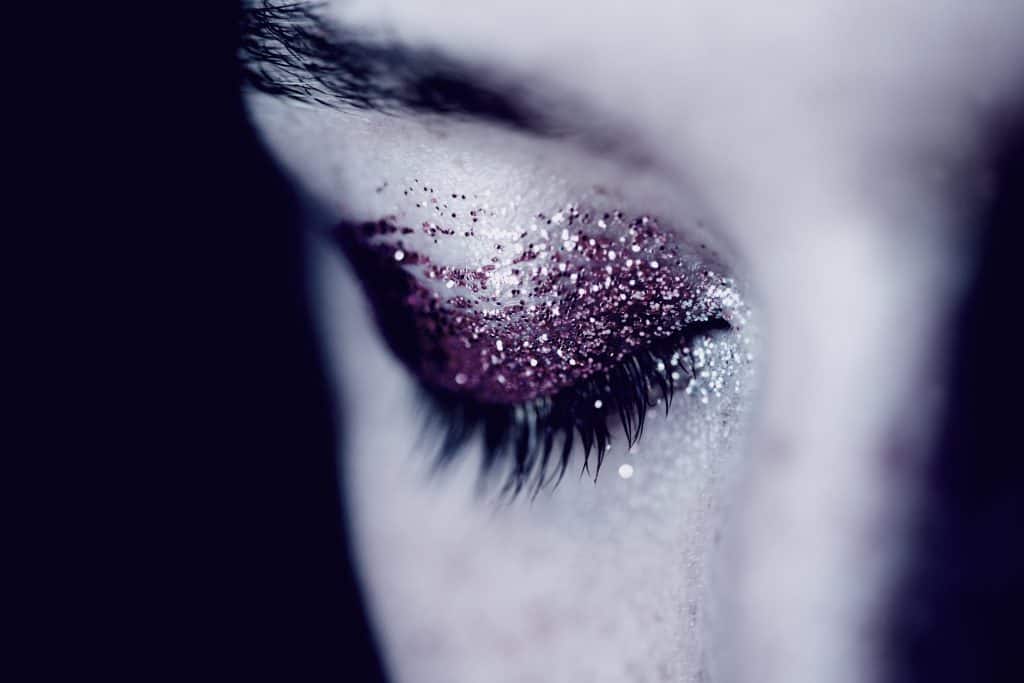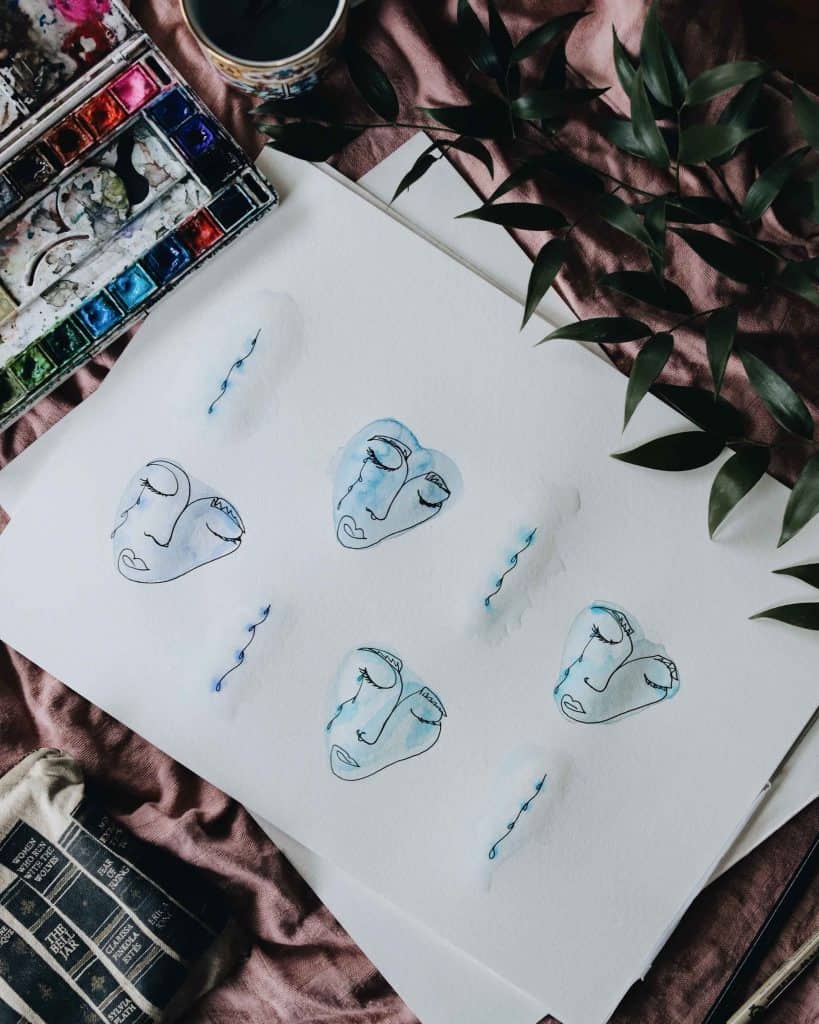
Crying is a funny thing. In a completely unfunny way. It’s primarily seen as a sign of sadness; and therefore bad. Or, perhaps, as a sign of weakness? How many of us have struggled not to cry when we’ve fallen over and hurt ourselves? Even as adults? Or maybe especially as adults?
Crying is often viewed as the province of children. A behaviour we should grow out of as we mature. But even children are discouraged, often, from their tears. It’s a behaviour we try to minimize; even in babies. There is a certain stigma around crying. Whether it’s fear of being called a ‘cry baby’ as a child or teenage? Or worrying that as an adult it’s a sign that you can’t cope or that you’re too sensitive? But why does this stigma persist?
Times We Cry
Crying is one of the first things we do in life. As babies, a newborn is expected to cry for a few hours a day. Even when they end the newborn phase, many babies have a witching hour where they may cry. And before babies develop language, it’s their main form of communication. And, if we think about it, as we get older that doesn’t really change. Yes, we develop the ability to use our words to say how we feel. But what happens when words aren’t enough? Our tears communicate our pain, sadness or grief to those around us.
But we don’t only cry in negative or difficult situations. Whilst tears have become synonymous with pain; both physical and emotional. Tears can also be an expression of joy. Indeed, tears of joy is an expression for a reason. Perhaps it’s something you’ve experienced too? Ever been with friends or family and you’ve laughed until you’ve cried? When the laughter bubbles up inside of you, your sides hurt and tears flow. So, it’s not all bad.
Benefits of Crying
The Emotional Response
The benefits of crying, yes they do exist, are more than I ever imagined when I began researching the topic for this post. Whilst our eyes need tears to keep them lubricated. Emotional tears, those that manifest when we cry, contain stress hormones and toxins. Literally, the need to cry in difficult or stressful times, helps to detoxify our body. Thus, the urge to cry shouldn’t be ignored or controlled but rather encouraged. It’s a biological process our body undergoes for our emotional health.
The act of crying can also help us unwind and begin to relax. In theory, we should all take our cues from babies who sometimes need a few minutes of crying before bed. It helps them unwind from the day and any overstimulation. Likewise, the same is true for adults. Research has found that crying can stimulate our Parasympathetic Nervous System. A branch of our Autonomic Nervous System which helps us ‘rest and digest’ after a period of stress. After our fight, flight or freeze mechanism, part of our bodies stress response, has been triggered.

For a further understanding of how our stress response works read here.
Crying has further benefits when engaged with long-term. A ‘good long cry’ releases oxytocin; our love hormone. And releases endorphins which promote calm and relaxation. Both oxytocin and endorphins can help dull pain; whether physical or emotional. Which might explain why we primarily cry when we are in some form of pain. And why crying may provide us with a reprieve from the pain.
Lastly, crying can be incredibly cathartic. Perhaps you’ve experienced relief after a cry. The feeling of unloading a heavy emotion or finding some balance. This may work as crying gives your body time to process an emotional upheaval and recover from a scare or a shock.
The Social Response
Another reason crying might make us feel better is because it provokes a social response. Whether that’s managing pain, relaxing or processing emotions. Our tears are a sign of communication; signalling our distress to those around us. Hopefully, if we are lucky enough to have a support network of those who care, our tears will be a call to action. Rallying our nearest and dearest to provide an additional level of support when we need it most.
As we know, having the privilege of a group of people who care for us, can work wonders for our mental health. A support network can be integral to any form of health recovery. And communication and connection is an important act of self-care. Allowing us to feel less alone and isolated. Supported and sustained. And giving us a much need break from the stresses of daily life and perhaps negative thoughts or patterns of overthinking.
For more on providing support through empathy read here.
For more on improving your listening skills read here.
What are your thoughts on crying? Does it help or hinder? Let us know below!

I always feel better after crying. It relaxes me I find.
I feel like after I cry I can move on from how I’m feeling or at least deal with it better. Somehow it takes the edge off!
there’s moments where crying is such a release. it releases the pain & just makes me feel better sometimes.
Definitely! I think it’s part of the process when we have certain emotions. It can be so cathartic!
Wow! I knew that crying could provide a release but I had no idea that our tear contain stress hormones and toxins! Even more reason to enjoy a good cry now and then. Thanks so much for researching this!
So glad this was interesting. I decided to research after reading that babies release stress hormones when they cry so sometimes they just need to let it out. I wondered if it had similar benefits for adults. Turns out it does!
This is such an interesting post! I tend to be a crier, and do feel better after this release. Thanks for sharing this information.
Pleasure! I’m glad it was interesting. And now we know why we feel better after a good old cry 🙂
I had no idea crying could release oxytocin and endorphins, so I just learnt something new. I’ve not been able to properly cry in decades, I can just about shed a single tear when something hits me in the feels, but other than that, I seem incapable of crying
I’m sorry to hear that. It was eye opening for me too. I had years when I didn’t cry and then it was like a switch flipped one day!
I always say having a good cry is good for you but I never realised all of these benefits! Great post x
Thanks Della! It’s definitely something I’m not going to try and stop in the future!
Honestly, I love crying. I feel like it releases so much and I usually sleep like a baby after haha glad my opinion is supported by science!
Definitely! It’s always nice to know the research is there! I was surprised there was so much about crying but it all makes so much sense!
Cool! So many fun facts about crying that I never knew. It definitely works for me. I feel so much calmer after I cry.
Same. I’ve always kind of resisted crying but I know I feel much better after so I should just let it happen!
I’m not usually a cryer, but after reading this I won’t try so hard to stop the tears next time.
That was my thought too. I’ve always tried not to cry but now I know the actual benefits I think sometimes you just need to!
I LOVE a good cry, it makes you feel so refreshed and renewed to just get it all out and really feel like you’re moving on from whatever occurred. Thanks for sharing how important is it to not view crying as only a bad thing, but also it’s positives as well for you and your wellbeing.
It can be very cathartic can’t it! It can be a good way to process I think. But, of course, we all process in different ways.